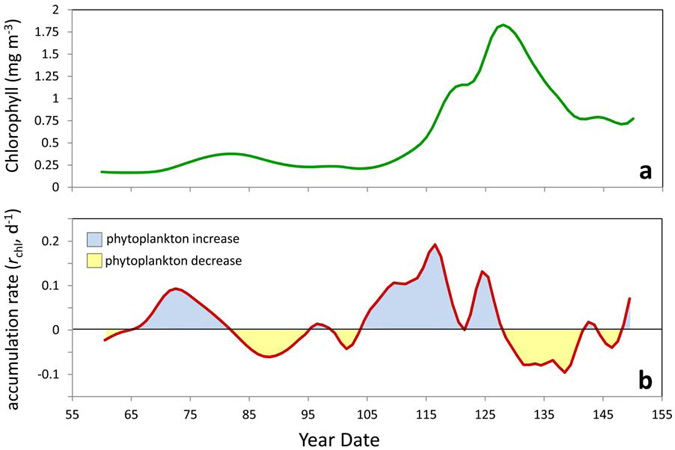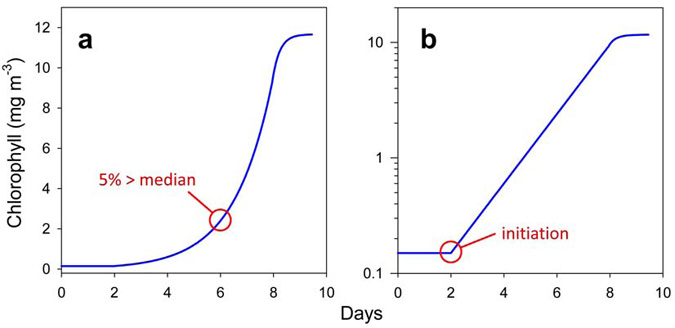
Full text loading...
Nutrient and light conditions control phytoplankton division rates in the surface ocean and, it is commonly believed, dictate when and where high concentrations, or blooms, of plankton occur. Yet after a century of investigation, rates of phytoplankton biomass accumulation show no correlation with cell division rates. Consequently, factors controlling plankton blooms remain highly controversial. In this review, we endorse the view that blooms are not governed by abiotic factors controlling cell division, but rather reflect subtle ecosystem imbalances instigated by climate forcings or food-web shifts. The annual global procession of ocean plankton blooms thus represents a report on the recent history of predator-prey interactions modulated by physical processes that, almost coincidentally, also control surface nutrient inputs.

Article metrics loading...

Full text loading...


Data & Media loading...
Supplemental Material
Download all Supplemental Material as a single PDF. Includes Supplemental Methods, Supplemental Figures 1-2 (also reproduced below), and Supplemental References. NOTE: A revised version of this material was posted online on December 2, 2013. Supplemental Figure 1: Chlorophyll concentrations and chlorophyll accumulation rates during the 2008 North Atlantic Bloom (NAB08) study (a) The NAB08 study spanned a period of April-through-May, which encompassed the climax (year date 128) in bloom chlorophyll concentration. Throughout this period, various data sources recorded chlorophyll concentrations, including satellite measurements, autonomous sensors, and in situ measurements. Data in panel a (green line) is a spline fit to this combined data set. (b) A daily specific rate of accumulation in chlorophyll (rchl) can be estimated from the chlorophyll timeseries (panel a) following: rchl = ln(Chlt2/Chlt1)/(t2-t1), where Chlt2 and Chlt1 are the observed chlorophyll concentrations at time points t2 and t1, respectively (note, effects of dilution by mixed layer deepening are not accounted for in this calculation, so values for rchl are conservative). The time-series for rchl during the NAB08 study is shown in panel b, with periods of increasing chlorophyll identified by blue shading and decreasing chlorophyll indicated by yellow shading. This assessment shows periods of positive rchl throughout the NAB08 study. Satellite data show that positive values of rchl may also be observed as early as February and March for this location (Behrenfeld 2010, Behrenfeld et al. 2013). The values of rchl shown in panel b are calculated from the spline-fit data in panel a, which gives a more smoothed time course than if raw values had been used in the calculation (i.e., the actual daily values for rchl exhibit considerably greater variability). Supplemental Figure 2: Identifying bloom initiation during exponential growth. Using a threshold chlorophyll concentration, such as 5% above the annual median concentration (Siegel et al. 2002, Henson et al. 2009), can result in incorrect conclusions regarding bloom initiation. In panel a, the blue line represents chlorophyll concentration in an exponentially growing phytoplankton culture. Chlorophyll concentration exceeds by 5% the median for this timecourse on day 6 (red circle). Based on this criterion for identifying initiation, one would have to conclude that growth conditions on day 6 crossed a critical threshold that first permited biomass accumulation. If chlorophyll concentrations during exponential growth are instead plotted on a logarithmic scale (panel b), the slope of the resultant line is proportional to growth rate. This rescaling clearly reveals that the culture started blooming on day 2 (red circle), which now correctly identifies bloom initiation.

